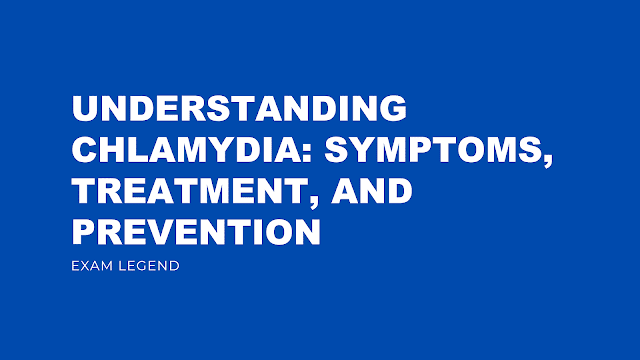Chlamydia: Symptoms, Treatment, and Prevention
Introduction:
Chlamydia is a sexually transmitted infection (STI) that is caused by the bacterium Chlamydia trachomatis. It is the most common bacterial STI in the United States and affects both men and women. The infection is often asymptomatic, meaning that it can cause no symptoms, which is why it is important to get tested for STIs regularly. In this article, we will discuss the symptoms, treatment options, and ways to prevent chlamydia.
Symptoms:
Chlamydia can cause a variety of symptoms in both men and women. Some of the most common symptoms include:
Discharge from the genitals
Pain during urination
Lower abdominal pain
Pain during sexual intercourse
In men, pain or swelling in the testicles
In women, bleeding between periods or heavier periods
It is important to note that many people with chlamydia do not experience any symptoms, which is why it is important to get tested for STIs regularly.
Treatment:
Chlamydia can be treated with antibiotics. The most common antibiotics used to treat chlamydia are azithromycin and doxycycline. It is important to take the full course of antibiotics as prescribed by your healthcare provider.
Complications:
If left untreated, chlamydia can lead to serious health problems. In women, it can cause pelvic inflammatory disease (PID) which can lead to infertility and ectopic pregnancies. In men, it can cause epididymitis, which can lead to infertility.
Prevention:
The best way to prevent chlamydia is to use condoms during sexual activity, limit the number of sexual partners, and get tested for STIs regularly. It's also important to practice safe sex and to communicate openly and honestly with your sexual partners about STIs.
Conclusion:
Chlamydia is a common STI that can cause serious health problems if left untreated. It is important to be aware of the symptoms, get tested regularly, and take steps to prevent the spread of the infection. If you have any concerns about chlamydia, be sure to talk to your healthcare provider.

Comments
Post a Comment